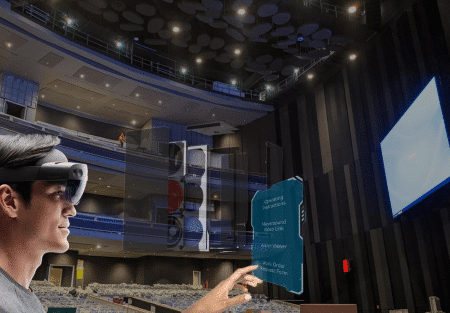
AI innovation is making a significant impact on our daily lives. AI innovation can make a huge impact on everything, from health care to basic operations of businesses. AI can make everything possible, but it also has the potential for disaster. It is vital to be prepared for what AI could mean in the future.
'AlphaGo moment' for ai innovation
An algorithm that performs better than a human player in a game is known as an 'AlphaGo moment'. AlphaGo's developers plan to extend the technology to other industries. Google has already made investments in AI research, developing a system to play the popular boardgame Go. Google products such photos, the assistant, self-driving vehicles, healthcare, manufacturing and other will all benefit from its investment.
Pharma is another area where AI has the potential to make a significant impact. It usually takes 2 to 3 years to create a new drug. However, AI for Drug Discovery demonstrated that they can do drug discovery in less than two months. It is 15 times faster then a typical pharmaceutical corporation. Insilico Medicine published an article in Nature Biotechnology that shows how they constructed a drug completely from scratch and validated the results in only 46 days.

Artificial intelligence can cause catastrophe
AI is a tool that can solve our biggest problems but also have the potential to cause new problems. This will result in a lot less job opportunities and more automation. This will also have implications for society. It is important to examine how technology may affect society and to take steps to reduce it.
First, ensure that AI systems are built using high-quality data. This data can come directly from satellite-derived imagery. Satellite-derived imagery has been used for Earth observation for many decades. New ways to use satellite-derived imagery are emerging in disaster response, and scientists are using it to develop better probabilistic flood scenarios.
Health care: Impact
AI-based solutions can make medical professionals' work more efficient by analyzing large amounts of data. They can help physicians make better clinical decisions and predict emerging problems. They can also improve the scheduling of clinical staff rotations and factor in operational constraints. This will improve patient care. However, the technology will only be beneficial if it is used appropriately.
A strategic approach to AI will help healthcare organizations develop a long-term vision. It will also help them define specific initiatives, resources, and performance indicators. They will also have to establish standards for data quality, sharing, and how AI will use. Finally, they will need to assess the workforce needs of their organization and invest into training and lifelong education programs.

Ways to harness ai innovation
There are many different ways to harness AI innovation. Data-driven apps can be used to make better business decisions and enhance human intuition. However, it is important to make the most of this technology. Companies should build an AI foundation before they deploy it throughout their company. For example, data-driven applications in the banking and financial sectors, energy networks, and healthcare are great candidates for AI application.
It is crucial to find the best AI solutions for specific business goals. Firms should look at their current marketing capabilities before implementing AI in marketing. AI won't work well with existing metrics and processes if it doesn't have strong marketing capabilities. This could lead to wasted investments and organizational disruption. Companies should also consider how AI can help improve customer experience and decrease human support.
FAQ
How will governments regulate AI
Although AI is already being regulated by governments, there are still many things that they can do to improve their regulation. They must ensure that individuals have control over how their data is used. Companies shouldn't use AI to obstruct their rights.
They must also ensure that there is no unfair competition between types of businesses. For example, if you're a small business owner who wants to use AI to help run your business, then you should be allowed to do that without facing restrictions from other big businesses.
Who invented AI?
Alan Turing
Turing was born 1912. His father was a clergyman, and his mother was a nurse. He excelled in mathematics at school but was depressed when he was rejected by Cambridge University. He discovered chess and won several tournaments. He returned to Britain in 1945 and worked at Bletchley Park's secret code-breaking centre Bletchley Park. Here he discovered German codes.
He died in 1954.
John McCarthy
McCarthy was conceived in 1928. Before joining MIT, he studied mathematics at Princeton University. There, he created the LISP programming languages. He had already created the foundations for modern AI by 1957.
He died on November 11, 2011.
What is AI good for?
AI serves two primary purposes.
* Prediction - AI systems can predict future events. For example, a self-driving car can use AI to identify traffic lights and stop at red ones.
* Decision making. AI systems can make important decisions for us. As an example, your smartphone can recognize faces to suggest friends or make calls.
Statistics
- By using BrainBox AI, commercial buildings can reduce total energy costs by 25% and improves occupant comfort by 60%. (analyticsinsight.net)
- While all of it is still what seems like a far way off, the future of this technology presents a Catch-22, able to solve the world's problems and likely to power all the A.I. systems on earth, but also incredibly dangerous in the wrong hands. (forbes.com)
- According to the company's website, more than 800 financial firms use AlphaSense, including some Fortune 500 corporations. (builtin.com)
- In the first half of 2017, the company discovered and banned 300,000 terrorist-linked accounts, 95 percent of which were found by non-human, artificially intelligent machines. (builtin.com)
- A 2021 Pew Research survey revealed that 37 percent of respondents who are more concerned than excited about AI had concerns including job loss, privacy, and AI's potential to “surpass human skills.” (builtin.com)
External Links
How To
How to set up Google Home
Google Home is an artificial intelligence-powered digital assistant. It uses natural language processing and sophisticated algorithms to answer your questions. With Google Assistant, you can do everything from search the web to set timers to create reminders and then have those reminders sent right to your phone.
Google Home is compatible with Android phones, iPhones and iPads. You can interact with your Google Account via your smartphone. By connecting an iPhone or iPad to a Google Home over WiFi, you can take advantage of features like Apple Pay, Siri Shortcuts, and third-party apps that are optimized for Google Home.
Like every Google product, Google Home comes with many useful features. For example, it will learn your routines and remember what you tell it to do. So when you wake up in the morning, you don't need to retell how to turn on your lights, adjust the temperature, or stream music. Instead, all you need to do is say "Hey Google!" and tell it what you would like.
To set up Google Home, follow these steps:
-
Turn on Google Home.
-
Hold the Action button in your Google Home.
-
The Setup Wizard appears.
-
Select Continue
-
Enter your email adress and password.
-
Select Sign In.
-
Your Google Home is now ready to be